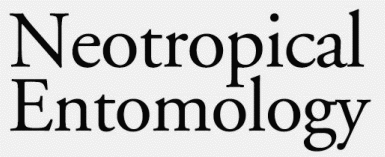The development of Melittobia australica Girault and M. digitata Dahms were studied parasitizing blow fly puparia Neobellieria (=Sarcophaga) bullata (Parker) using from one to five foundress females per host. Aspects of parasitoids biology such as number of descendents produced, longevity, and progeny body size can be affected as the number of foundress increases per host. The percentage of puparia parasitized was higher overall for M. digitata than for M. australica. Regardless of foundress numbers, the average total number of descendents produced was significantly higher for M. digitata (66.5 158.0) than for M. australica (10.9 55.5). The number of descendents produced per female was inversely proportional to the number of foundresses on a host for both species. Developmental time increased for M. australica and decreased for M. digitata, as the number of foundresses increased. Life spans of adult progeny of both species, deprived of host and food, were longer for progeny derived from fewer foundresses. Body size as measured by forewing and hind-tibia lengths of descendents showed significant reduction as number of foundresses increased for both species, except for the forewing of M. digitata. Changing foundress number did not affect offspring sex ratios (0.95 0.98 for M. australica, and 0.95 0.97 for M. digitata). These results indicated that M. digitata achieved better performance parasitizing N. bullata compared to M. australica, and both parasitoid species had their performance affected by increasing the parasitoid densities per host, suggesting that progeny competition occurred.
Insecta; parasitoid; facultative host; sex ratio; developmental plasticity






